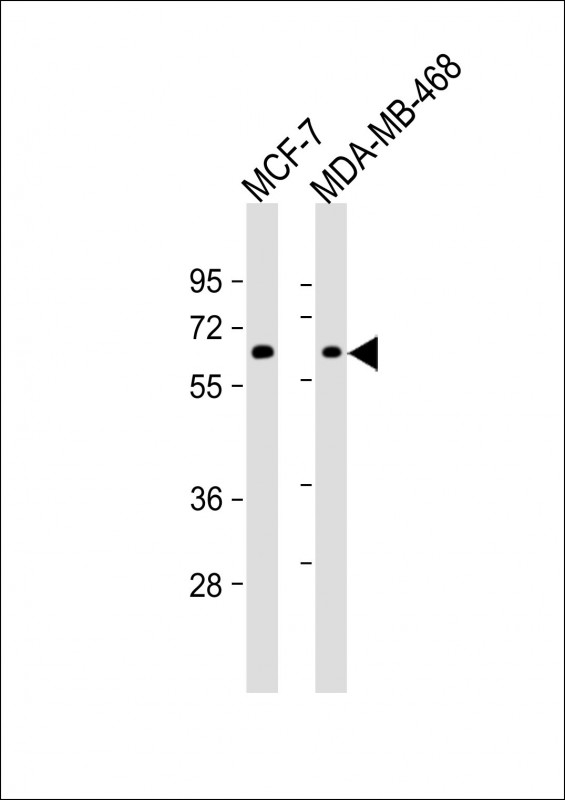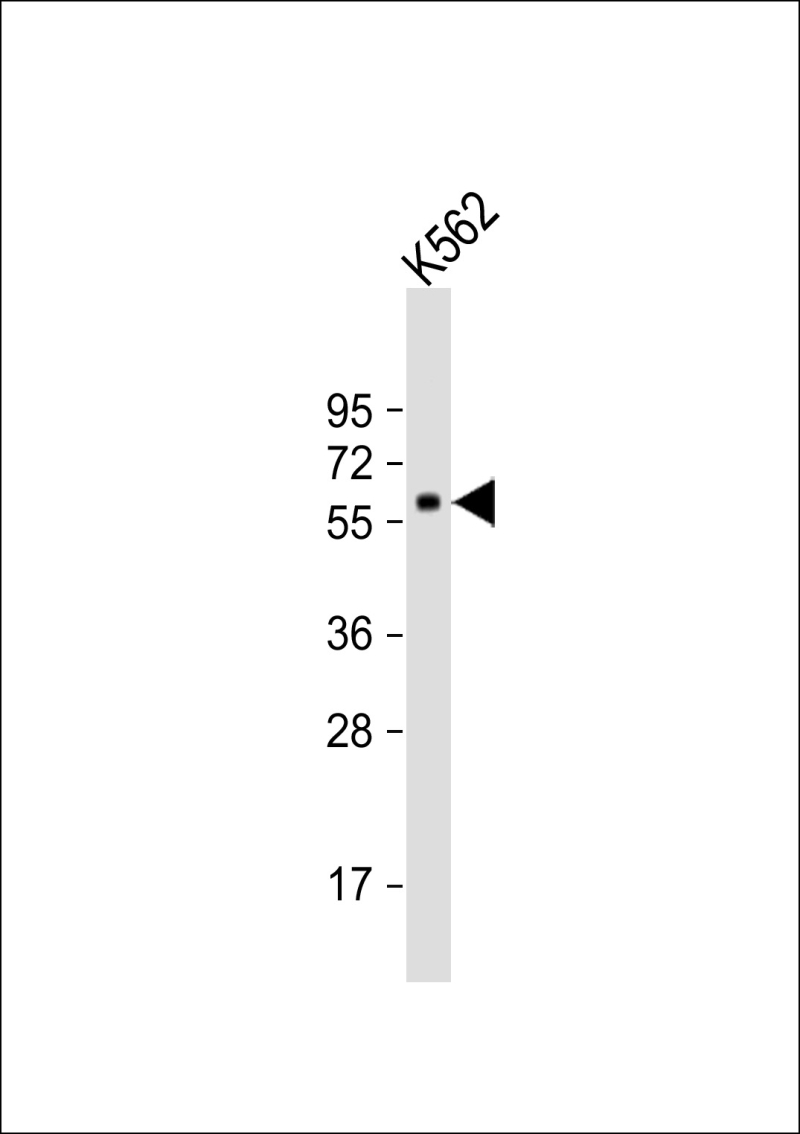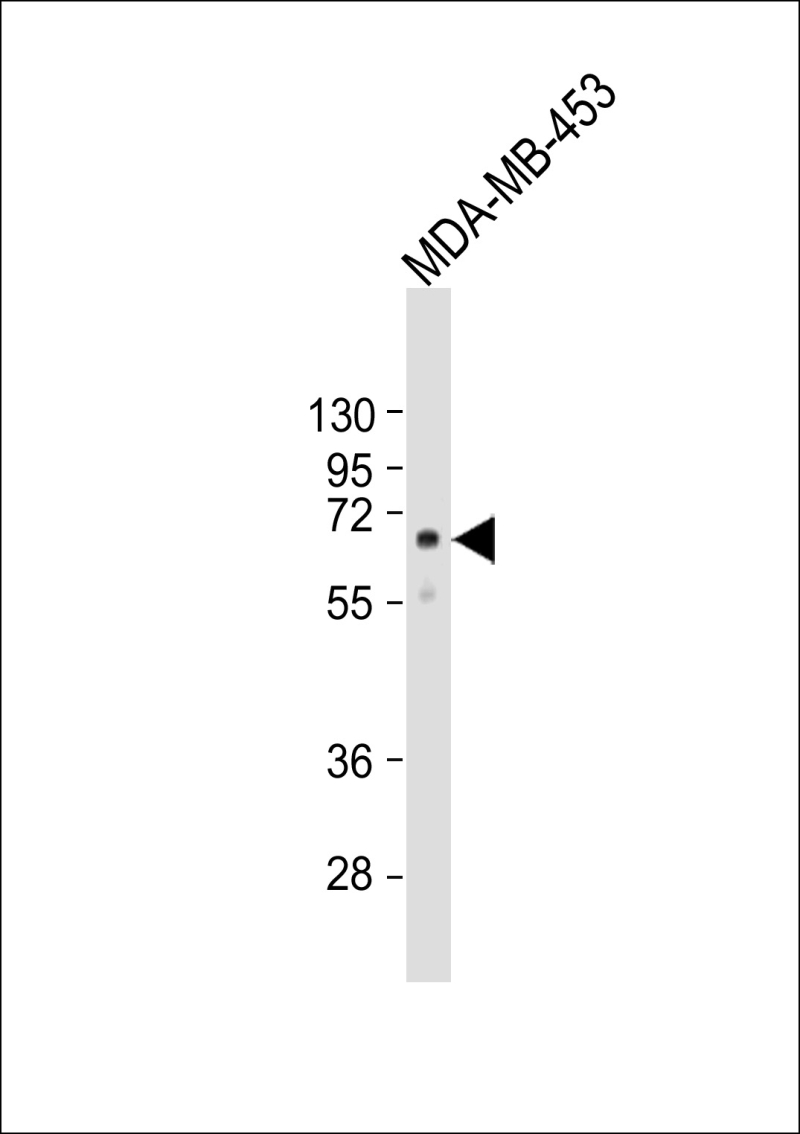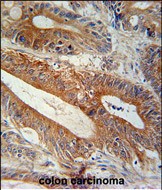



| WB | 1/1000-1/5000 | Human,Mouse,Rat |
| IF | 咨询技术 | Human,Mouse,Rat |
| IHC | 1/100-1/500 | Human,Mouse,Rat |
| ICC | 技术咨询 | Human,Mouse,Rat |
| FCM | 咨询技术 | Human,Mouse,Rat |
| Elisa | 咨询技术 | Human,Mouse,Rat |
| Aliases | 5'-AMP-activated protein kinase catalytic subunit alpha-1, AMPK subunit alpha-1, Acetyl-CoA carboxylase kinase, ACACA kinase, Hydroxymethylglutaryl-CoA reductase kinase, HMGCR kinase, Tau-protein kinase PRKAA1, PRKAA1, AMPK1 |
| Entrez GeneID | 5562 |
| WB Predicted band size | 64.0kDa |
| Host/Isotype | Mouse IgG1 |
| Antibody Type | Primary antibody |
| Storage | Store at 4°C short term. Aliquot and store at -20°C long term. Avoid freeze/thaw cycles. |
| Species Reactivity | Human |
| Immunogen | This PRKAA1 Monoclonal antibody was raised using purified His-tagged recombinant human PRKAA1. |
| Formulation | Purified antibody in PBS with 0.05% sodium azide. |
+ +
以下是关于PRKAA1抗体的3篇参考文献示例(注:文献为示例,非真实存在):
1. **文献名称**:*PRKAA1 regulates autophagy via AMPK/mTOR signaling in hepatocellular carcinoma*
**作者**:Li X, et al.
**摘要**:研究利用PRKAA1抗体通过Western blot和免疫组化分析肝癌细胞中PRKAA1的表达,发现其通过调控AMPK/mTOR通路影响自噬和肿瘤进展。
2. **文献名称**:*AMPKα1 (PRKAA1) phosphorylation status in diabetic cardiomyopathy*
**作者**:Wang Y, et al.
**摘要**:通过特异性PRKAA1抗体检测糖尿病小鼠心肌组织中PRKAA1的磷酸化水平,揭示其在心脏能量代谢障碍中的关键作用。
3. **文献名称**:*PRKAA1 deficiency alters mitochondrial dynamics in skeletal muscle*
**作者**:Smith J, et al.
**摘要**:利用PRKAA1敲除小鼠模型和免疫荧光技术(PRKAA1抗体标记),证明PRKAA1缺失导致线粒体功能异常和肌萎缩。
如需真实文献,建议通过PubMed或Google Scholar检索关键词“PRKAA1 antibody” + “Western blot/immunohistochemistry”(附时间筛选)。
The PRKAA1 antibody is a crucial tool for studying the PRKAA1 gene-encoded protein, also known as AMP-activated protein kinase subunit alpha-1 (AMPKα1). PRKAA1 functions as a catalytic subunit of the AMP-activated protein kinase (AMPK) complex, a central regulator of cellular energy homeostasis. AMPK senses metabolic stress, such as low ATP levels, and activates pathways that restore energy balance by inhibiting anabolism and promoting catabolism. PRKAA1 plays a pivotal role in metabolic diseases, cancer, and aging-related research, making its detection vital for understanding these processes.
PRKAA1 antibodies are widely used in Western blotting, immunohistochemistry (IHC), immunofluorescence (IF), and flow cytometry to assess protein expression, localization, and post-translational modifications (e.g., phosphorylation at Thr172. a marker of AMPK activation). These antibodies are available in monoclonal or polyclonal forms, often raised in hosts like rabbits or mice. Specificity is validated using knockout/knockdown models or blocking peptides to confirm target recognition.
Researchers rely on PRKAA1 antibodies to explore its role in glucose/lipid metabolism, autophagy, and cellular stress responses. Dysregulation of AMPK signaling is linked to obesity, diabetes, and cancer, driving demand for high-quality antibodies in both basic and translational studies. Proper experimental optimization (e.g., sample preparation, antibody dilution) is essential to ensure accuracy.
×